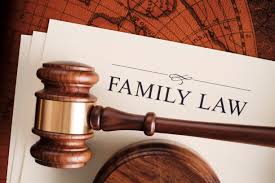How to Choose the Right Family Lawyer in Vietnam
Navigating family law matters, including divorce, child custody, and property division, can be emotionally taxing and legally complex. In Vietnam, it is crucial to find a family lawyer who not only has the expertise in family law but also understands the cultural and legal nuances of the Vietnamese system. Selecting the right family lawyer can significantly impact the outcome of your case, enhancing your chances for a favorable resolution. This comprehensive guide outlines key considerations in choosing the right family lawyer in Vietnam, helping you make an informed decision.
Understanding Family Law in Vietnam
Family law in Vietnam governs various issues related to personal relationships, family structures, and domestic matters. The primary legal framework is provided by the Civil Code and the Law on Marriage and Family. Common family law issues include:
- Divorce and Separation: Legal proceedings to dissolve a marriage, including discussions on custodial arrangements, property division, and alimony.
- Child Custody and Support: Determining custody arrangements and financial support for children during and after divorce.
- Adoption: Legal processes involved in adopting a child, ensuring compliance with Vietnamese laws.
- Domestic Violence and Protection Orders: Legal recourse for individuals facing domestic violence and the ability to seek protective orders.
Understanding these aspects of family law is essential when engaging a family lawyer, as it sets the foundation for analysis and representation.

Key Factors to Consider When Choosing a Family Lawyer
1. Specialization in Family Law
When seeking a family lawyer, begin by verifying their expertise in family law. Not all lawyers are specialists in this area, and it is crucial to choose someone with in-depth knowledge of the nuances of family law as practiced in Vietnam.
- Education and Experience: Look for lawyers with specific training in family law and a track record of handling family law cases similar to yours. Consider their years of experience and knowledge about the legal processes in Vietnam.
- Professional Designations: Check for membership in professional organizations or bar associations related to family law. This can indicate their commitment to continuous learning and professional development.
2. Reputation and Reviews
Assessing the reputation of a potential family lawyer is crucial to ensure your case is in competent hands:
- Client Testimonials: Look for reviews and testimonials from past clients. Online legal directories, social media platforms, and law firm websites often feature feedback from former clients.
- Peer Recommendations: Seek referrals from trusted sources such as friends, family, or colleagues who have previously engaged with family lawyers in Vietnam. First-hand experiences can provide valuable insights.

3. Communication Skills
Effective communication is vital during a family law case, as you will need to convey your needs and concerns to your lawyer clearly. Look for the following qualities:
- Active Listening: Your lawyer should demonstrate an ability to listen to your concerns and understand your objectives. This interaction is critical for building a strong attorney-client relationship.
- Clarity and Openness: A good lawyer can explain complex legal concepts in simple terms. They should provide clear and concise updates regarding your case, ensuring you remain informed throughout the process.
4. Approach and Philosophy
Understanding the lawyer’s approach to family law is essential, as it can significantly impact your case strategy:
- Negotiation vs. Litigation: Some attorneys may prefer to resolve disputes through negotiation and mediation, while others may be more inclined to pursue litigation when necessary. Assess which approach aligns with your desired outcome.
- Conflict Resolution Skills: Look for a lawyer who emphasizes conflict resolution and negotiation skills, as this can lead to more amicable settlements and maintain relationships, especially when children are involved.
5. Fee Structure
Understanding the lawyer’s fee structure upfront is critical for effective budgeting:
- Transparency in Fees: Inquire about the lawyer’s billing practices, including hourly rates, retainer fees, and any additional costs. A clear understanding of fees can help avoid unexpected expenses later.
- Payment Plans: Some lawyers may offer flexible payment options or contingency arrangements in certain cases. Discuss your financial situation to explore available options.
6. Personal Connection
Finding an attorney with whom you feel comfortable is vital:
- Trust and Rapport: Choose a lawyer you can trust and feel comfortable discussing personal and sensitive matters with. A strong personal connection can greatly enhance communication and collaboration.
- Cultural Sensitivity: Look for a family lawyer who understands Vietnamese culture and can navigate any cultural nuances in family law matters. This understanding can be particularly beneficial in sensitive cases.
How to Start the Process of Choosing a Family Lawyer
- Research Potential Lawyers: Utilize online resources, legal directories, and professional associations to identify family lawyers in Vietnam.
- Schedule Initial Consultations: Many lawyers offer free or low-cost initial consultations. Use this opportunity to discuss your case and evaluate whether the attorney is a good fit.
- Prepare for Consultations: Bring any relevant documents related to your family law case, such as divorce papers, custody agreements, or financial records. This will help the lawyer provide tailored advice based on your situation.
- Ask Questions: During consultations, inquire about the lawyer’s experience, fee structure, case management approach, and any other concerns you may have. Assess their responsiveness and communication style.
- Trust Your Instincts: After consultations, consider how you feel about each attorney. Aligning personal comfort with professional capability is essential for effective representation.

Conclusion
Choosing the right is a critical decision that can greatly influence the outcome of your case in Vietnamese family law. By considering factors such as specialization, reputation, communication, approach, fee structure, and personal connection, you can make an informed choice that aligns with your needs and objectives. Remember, the practice of family law is inherently sensitive and personal; therefore, having the right attorney by your side can provide reassurance, clarity, and guidance as you navigate the complexities of family disputes. By prioritizing comprehensive legal support, you can protect your interests and work towards achieving a favorable resolution.
